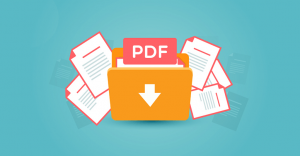With increasing digital interconnectivity, the risk of cyberattacks is at an all-time high. Hackers are constantly refining their techniques, but that doesn't mean you're powerless. There are several proactive measures you can take to protect your personal information. Here are some innovative ways to stop hackers before they have the chance to exploit your data.
1. Use Security Questions Carefully
Many websites and services still rely on security questions for password recovery. While this may seem like a useful safeguard, hackers can easily guess the answers if they have access to your social media profiles. Instead of choosing common questions like "What's your mother's maiden name?" opt for questions that are harder to find online or even consider using fictional answers. Alternatively, disable security questions altogether if the site offers another form of recovery, such as email verification.
2. Separate Personal and Professional Devices
In the modern work-from-home environment, many people use the same device for both personal and professional purposes. This can leave sensitive work data vulnerable if your personal accounts are compromised. Consider using separate devices for personal and professional tasks, or at the very least, create separate user accounts with different levels of access. This adds a layer of protection for your work data while reducing the risk of it being exposed through less secure personal applications.
3. Secure Your Browser and Disable Unnecessary Extensions
Your internet browser is a powerful tool, but it can also be a potential gateway for cybercriminals. Many attacks originate through browser vulnerabilities or malicious browser extensions. To secure your browser, regularly update it and disable extensions that you don't use. Also, consider using privacy-focused browsers that block tracking cookies and other threats. Additionally, clear your browser history and cache regularly to remove any stored data that malicious parties could access.
4. Use a Firewall for Additional Protection
A firewall acts as a barrier between your devices and potential threats from the internet. While most devices have a built-in firewall, it's essential to ensure it's enabled. A firewall monitors incoming and outgoing traffic, blocking anything that appears suspicious. For advanced protection, you can consider solutions like WatchGuard Online T Series Firewalls, which offer enhanced security features to safeguard your network from cyber threats. This extra layer of protection can help prevent hackers from gaining access to your system, especially when you're using the internet for online shopping or banking activities.
5. Implement a Zero-Trust Security Model
Zero-trust security is a modern approach where no one—inside or outside your network—is automatically trusted. In this model, every access request is thoroughly verified, regardless of where the request originates. Applying this model to your digital life may involve setting up multi-layered authentication methods, using secure cloud services with strict access controls, and verifying every action involving sensitive information. This ensures that hackers cannot easily bypass your security measures even if they manage to breach one layer.
6. Limit Digital Footprints
Your digital footprint refers to all the information you leave behind on the internet, such as social media posts, forum contributions, and even your search history. Hackers often use this information to craft targeted attacks. Reducing your digital footprint by limiting personal information on public forums, opting out of unnecessary data collection programs, and regularly cleaning up your social media profiles can decrease your exposure to targeted attacks.
7. Leverage AI-Powered Security Tools
Artificial Intelligence (AI) is revolutionizing cybersecurity. Today, AI-powered tools can monitor your system in real-time, identify potential threats, and react faster than human intervention alone. Using AI-based antivirus programs or security systems that adapt to emerging threats can give you an edge in staying one step ahead of hackers. These tools use machine learning to detect unusual patterns in your network and can identify suspicious behavior, such as phishing attempts or malware infections, even before they fully materialize.
8. Avoid Using Public Charging Stations
Many people are unaware that public charging stations—such as those found in airports and coffee shops—can pose a significant security risk. Hackers can potentially use these stations to inject malware into your devices through the charging cable. To avoid this, consider carrying your own portable charger or using a charging-only USB cable that prevents data transfer while your device charges.
Conclusion
In an increasingly digital world, safeguarding your information from hackers requires more than just basic precautions. By implementing strategies like securing your browser, limiting digital footprints, using AI-powered tools, and leveraging a zero-trust model, you can strengthen your defense against potential cyberattacks. These steps protect your personal data and help you stay ahead of ever-evolving threats, ensuring your digital presence remains secure.






